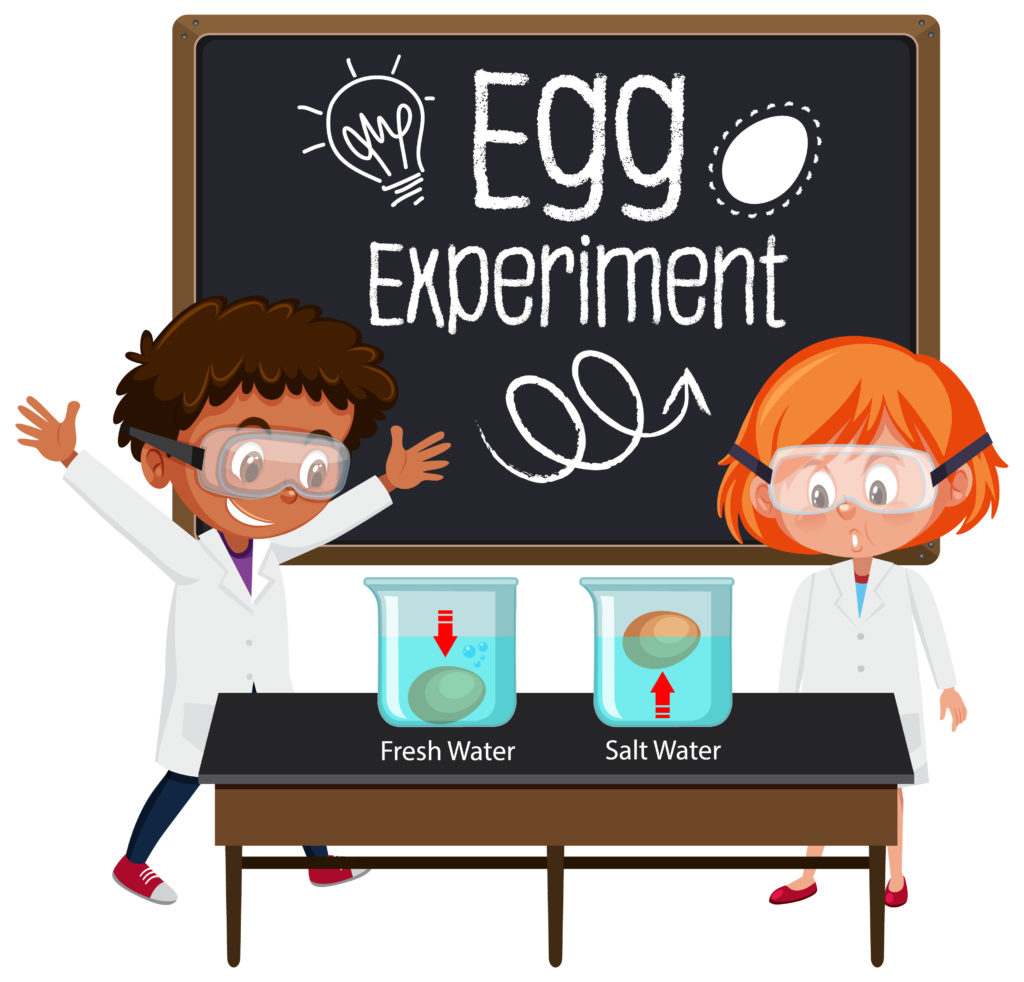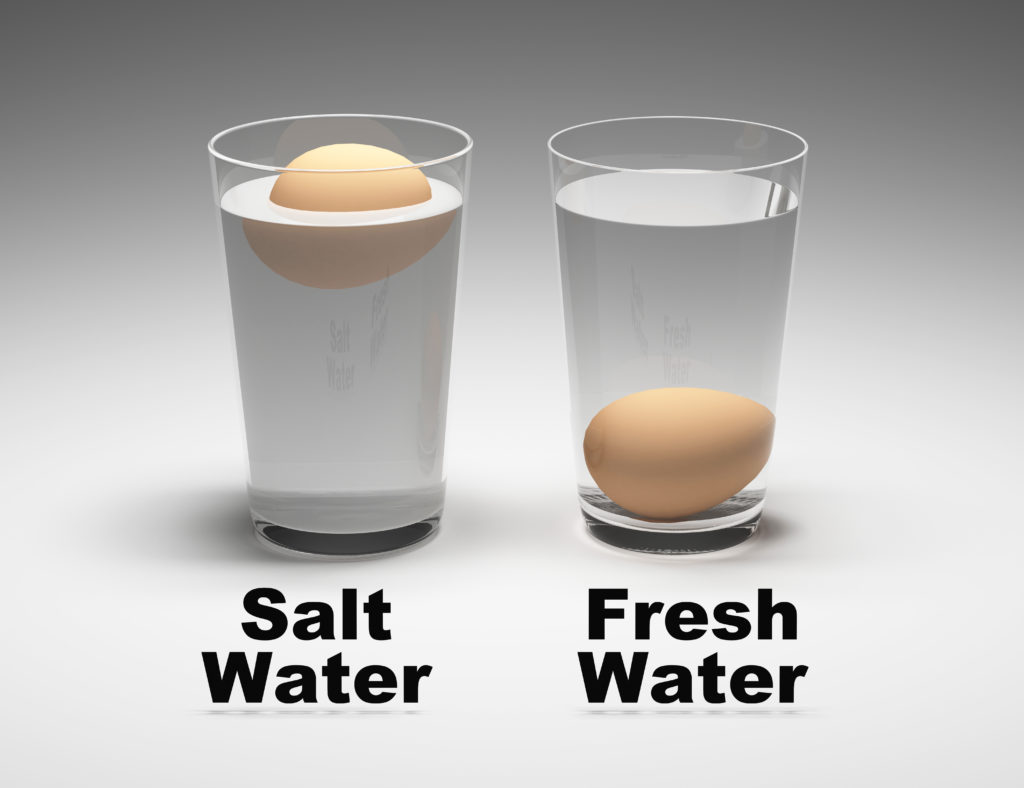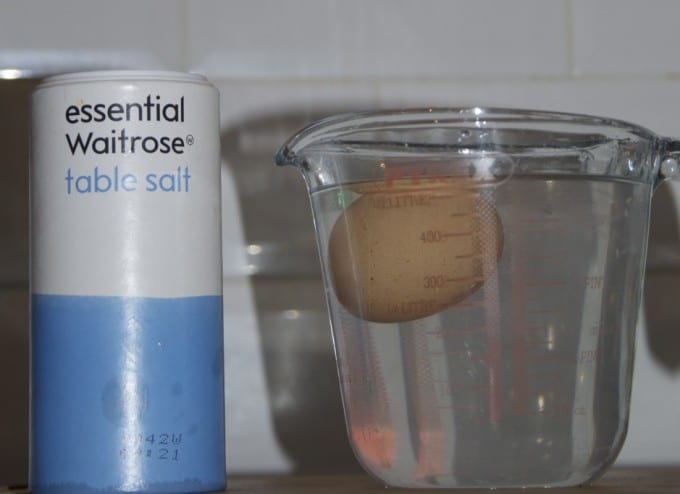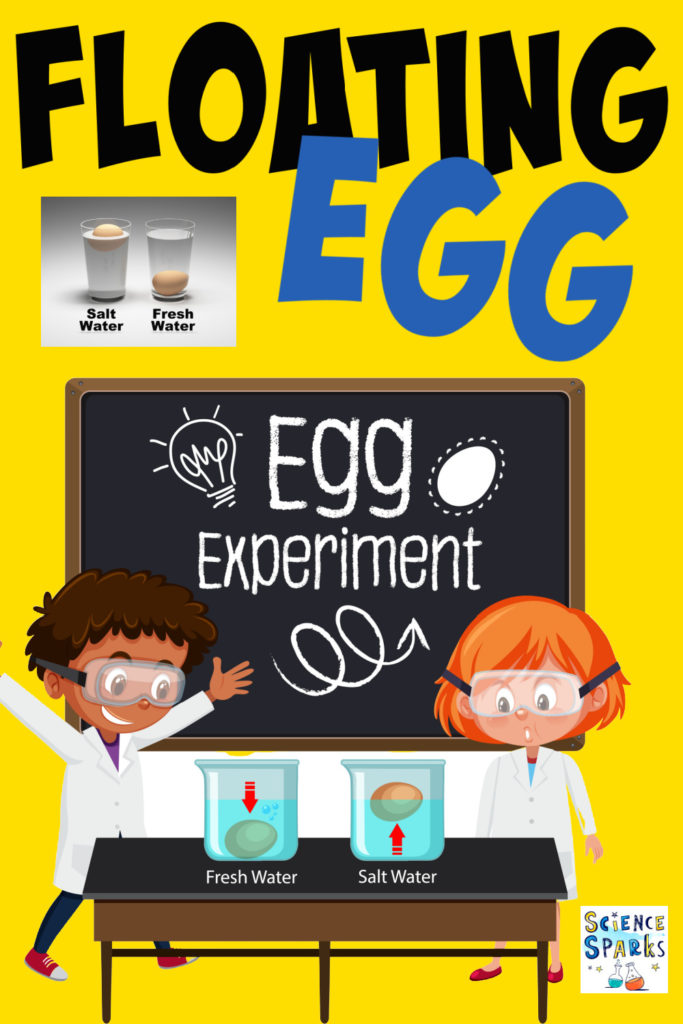Fresh eggs sink, and older eggs float. Eggs have air cell that becomes bigger as they age. Once the air pocket is big enough to make the egg less dense than water, the egg floats!!
Another way to make an egg float is to increase the density of the water the egg is in! Once the water becomes denser than the egg, the egg will float. We can increase the density of water with salt.
This easy kitchen science experiment just needs salt, water and a container.

How to make an egg float
You’ll need
- A bowl or large glass
- Tap water
- Table salt
- Fresh Egg
Instructions
- Fill the bowl or glass about ⅔ full with tap water.
- Drop the egg carefully into the bowl and watch as it sinks to the bottom.
- Remove the egg and add salt to the water stirring continuously. Keep adding salt until the egg floats.

Why does an egg float in salty water?
Objects sink when they are more dense than water and float if they are less dense than water.
Adding salt increases the density of the water.
Once the water is more dense than the egg, the egg floats.

You could also try other objects to see what else you can make float. Just remember to check the object sinks in tap water first. Why not try one of my other sink or float experiments?
More Kitchen Science Experiments for Kids
Find out how to make an egg bounce.
Discover how to bake ice cream in an oven without it melting.
Learn about the Maillard reaction, find out what a leavening agent is and more science in the kitchen with a science bake off!
Find out why honeycomb is bubbly.
Rainy Day Mum uses honeycomb to talk about igneous rocks!
I also have a HUGE collection of kitchen science experiments that will keep you busy for months!

Last Updated on May 5, 2023 by Emma Vanstone

This is one of the first science ‘tricks’ I remember from primary school days :0) its cool!
I love science experiments like this! Can’t wait to try it.
Let us know if you enjoy it!
Mmmh, I am sure I was told a floating egg is a bad egg.. is this how you can play tricks on people too? 🙂
Thank you for sharing on Kids Get Crafty!
Maggy
ha ha :-))
What a fun experiment. I can’t wait to put this experiment into our science lessons. I can’t believe how many fun experiments you do on your site. Educational and fun.
-Veronica @ http://watchmeplaynlearn.blogspot.com/
wow, thank you. That is so lovely to hear. x
That is so cool. I never knew you could do that (unless the egg was bad) Thanks for sharing on Monday Madness.
So glad you like it!
oh, you know I LOVE it! Keeping this in my back pocket for around Easter – perfect!!!
thanks for sharing on the sunday showcase! I pinned this!
I am doing this to show my class room 6.
Wow so cool
Had fun helping my daughter make it
This is the best prank to pull on my son. He is in collage and he is a great chef. knows everything! Thanks.